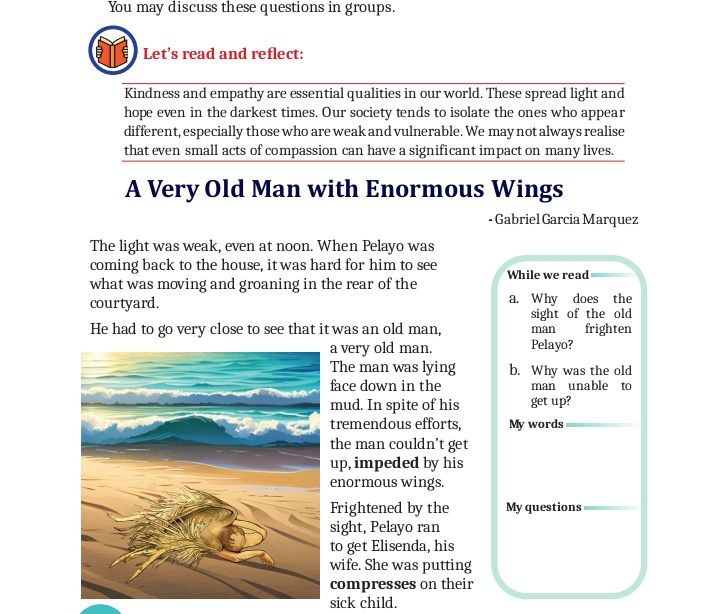Methodology Of Humanities
MODULE :1
Model Questions: Some Examples:
I. Multiple Choice Questions:
1. Psychology is a part of:
a. Social Science
b. Humanities
c. Natural Sciences
Ans: a
2. Positivism was advocated by:
a. Max Weber
b. August Comte
c. Emile Durkheim
Ans: b
II. Answer in a sentence or two:
1. What is Max Weber’s contribution to social sciences?
Ans: Max Weber championed the cause of value-freedom. In social sciences one has to concentrate on ‘what is probable’ than ‘what it should be’.
2. What is ideology?
Ans: It means the science of ideas. The Marxist theory however used the term to imply something that hides reality of the actual material condition of society.
III. Answer in a paragraph:
1. The Scientific Method
[Hints: Scientific Method must look for probable certainty-human knowledge gives importance to direct experience-social and cultural life subjected to scientific enquiry-caste or gender related
prejudices-different subject matter need different interpretation-‘how we know’ is more important]
2. How are humanities disciplines different from natural sciences?
[Hints: Mode of approach- Natural sciences depend on objective truth-humanities emphasize analysis and change-deals with human values-subjective interpretation-self-reflexive]
Essay
1. What do you understand by objectivity in scientific enquiry?
[Hints: Emphasis on objective truth limits the scope of scientific method-should aim at ‘probable certainty-areas of social and cultural life are subject to scientific enquiry-eg:caste,gender and prejudice-objective truth is the hall mark of scientific method-appropriate object of study of
natural phenomena-difficult to apply it in social sciences-natural world is directly
perceivable,measurable and controllable-objective method can be easily applied]
2 . Is history a social science or a subject of the humanities?
Ans: [Hints: Study of the past-regarded as an independent discipline-deals in ‘facts’-previously regarded as a literary art-society plays a huge role in the writing of history- a continuous interaction between the historian and facts-dialogue between past and present-similarities between
the historian’s task and that of the novelist-both historians and novelists tell stories-historians also have views and assumptions of the world they live in.]
MODULE :2
Model Questions: Some Examples:
I. Multiple Choice Questions:
1. In Saussurean terminology the rules of the language are called
a) parole b) arbitrary c) langue d) discourse
Ans d
2. A brand of criticism that resists English as a colonial weapon of oppression.
a) feminism b) postcolonialism c) Marxism d) nativism
Ans d
3 The belief that people and phenomena have unchanging essence is termed ----------. Ans essentialism
4 A study of the cultural system of signs is called ----------. Ans semiotics
II. Answer in a sentence or two:
1. Define culture.
2. What is agency?
3. What does Berger and Luckman mean by habitualisation?
4. What is nativism?
5. What is the Sapir-Whorf hypothesis?
III. Write short essays (paragraph)
1. Saussurean notion of language
[ Hints: sign system - parole – langue – arbitrariness – difference as meaning ]
2. Language and cultural identity
[ Hints: nationality – age – class – gender – religion – race etc.]
3. Essentialist and constructivist theories of culture
[ Hints: identity as stable essence – identity as constructed through discourses of power – identity and subjectivity]
4. Language and history
[ Hints: language of history – history of language – language and colonialism]
IV. Essay
1 Berger and Luckman’s views on social construction of reality. 2 Discuss language in relation to caste, class, race, and gender
MODULE : 3
Model Questions: Some Examples:
I. Multiple Choice Questions:
1. Narrative is an act of ---
Ans: Communication
2. Wimsatt and Robert Penn Warren belong to a group called ---
Ans. New critics
3. Death of the Author is written by ---
Ans: Roland Barthes
4. Who wrote Shamela?
Ans: Henry Fielding
5. J M Coetzee's Foe is a retelling of …
Ans: Robinson Crusoe
6. Mary Shelley's Frankenstein is about the quest of a ---
Ans: Scientist
7. Who wrote Wide Sargasso Sea?
Ans: Jean Rhys
8. The narrative strategies of Hadith are associated with which religion?
Ans: Islam
9. The study of narrative is known as …
Ans: Narratology
II Answer in a sentence or two
1. Define fabula and sjuzet?
2. Who is an implied author?
3. Define heterodigetic narrator
4. Explain annals mode of historical narrations
5. Define metatextuality
6. What is mimesis?
III. Write short essays (paragraph)
1. What is textuality?
[New Critics- Wimsatt and Beardsley, Robert Penn Warren argued - the meaning rests with the text -there is no need to step outside it to discover its meaning- Roland Barthes- supported this idea of scattered identity of a text- a work is dead and the text is alive-a text is unlimited]
2. Comment on different narrative modes of thinking.
[logico-scientific-narrative- The truth value of a statement in narrative thinking is dependent upon the context in which it is spoken- Narrative thinking is rooted in a context- Narration in literature- philosophy –history]
3. What is Mimesis ?
[Imitation- Greek philosophers -Plato and Aristotle- Plato regards mimesis mere representation-not expression- emphasis on ultimate reality- Aristotle modified - poet is not to simply imitate the original - to improve - by re-creating the original.]
III Essay
1. Literary narratives. 2. The concept of textuality.
MODULE : 4
Model Questions: Some Examples:
I. Multiple Choice Questions:
1. Which among the following is a heterodox school of Indian philosophy ?
(a)Nyaya (b) Vaisesika (c) Buddhism
Ans: (c ) Buddhism.
2. Which one of the following is a means of valid knowledge?
(a) Anumana (b) Smriti (c) Tarka
Ans: (a) Anuman
3. Which of the following pramanas is not accepted by the sankhyas ?
(a) perception, (b)comparison (c) inference
Ans: (b) comparison.
4. The schools which accepted the authority of the Vedas are called…….
Ans:Orthodox (astika) schools
5 The Yoga school was founded by……..
Ans: Patanjali
6 Which of the pramanas is considered valid by all the schools of Indian Philosophy?
Ans: perception or pratyaksa
7 Which school of philosophy propounded the doctrine of syadavada?
Ans: Jainism.
8 Who outlined the four periods in the development of Indian philosophy?
Ans: Dr. S.Radhakrishnan
II. Answer in a sentence or two:
1. Why do the materialists not accept Akasa as one of the eternal elements?
Ans: Materialists considered sense perception as the only source of valid knowledge. They did not accept Akasa as an eternal element as it cannot be perceived through the senses.
2. How were the Upanishadic ideas democratized in the epic period ?
Ans: Upanishadic ideas werebdemocratized in the epic period through Buddhism and the Bhagavad gita
III. Write short essays (paragraph)
1. The Vedic period
Hints: (origin of philosophy from the veda – four periods – vedic period of Aryan
settlement – sublime idealism – thought and superstition in conflict).
2. Discuss the different kinds of invalid knowledge?
Hints: (prama and aprama as part of Jnana – apramas --memory – doubt – error – hypothecatal arguments)
IV. Essay
1. Comment on the Heterodox schools of Indian philosophy.
Hints: (Nine schools – simultaneous development – schools that reject vedic authority – the carvaka school – Buddhism - Jainism)
2. How do the different schools interpret the concept of illusion?
Hints: illusion or Khyati – special type of error – mix-up of cognitions – interpreted by different schools – the 7 classifications)



Comments
Post a Comment
Please share your feedback and questions